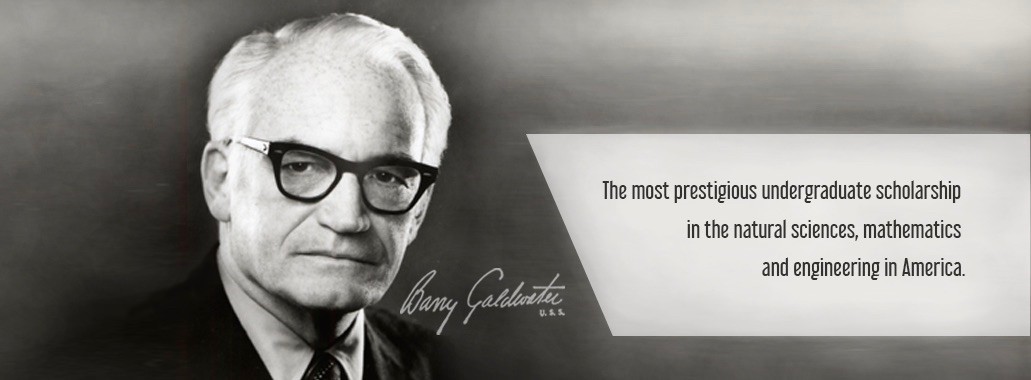
Goldwater scholars adapt amid crisis
UC Goldwater Scholars successfully take research out of the lab and onto the web during pandemic
What do University of Cincinnati Goldwater scholars do when their research laboratories are shuttered during a pandemic? Take their teamwork online.
Until the recent COVID-19 social distancing mandate, UC’s recent Barry Goldwater Scholarship and Excellence in Education Foundation recipients, Rishi Mehta and Zachary Thomas, were building success as undergraduate researchers in the medical sciences and biomedical engineering programs respectively. And they’re not slowing down.
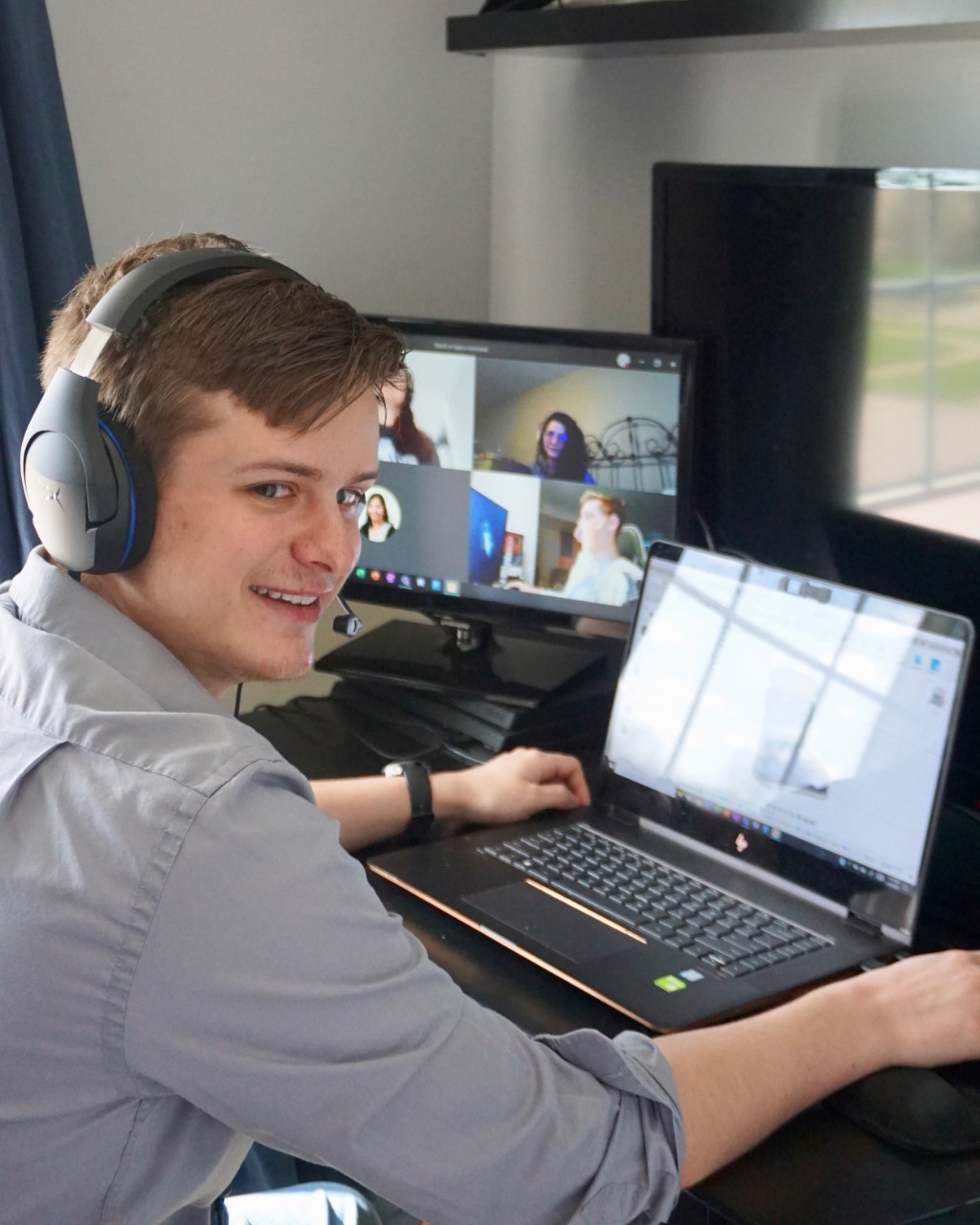
Zachary Thomas
“We just switched gears,” says Thomas, third-year UC biomedical engineering student. “During the quarantine, I’m still active with the Enable UC campus club building prosthetic devices for children in need.
“Thankfully we have the technology to interface with each of our team members remotely. And several of our team members were able to take the main 3D printers from the lab at UC to their homes to continue to build prototypes.
As a second-year medical sciences undergraduate student, Rishi Mehta worked as a student in the laboratory of Laura Ramsey, UC assistant professor of pediatrics and research at Cincinnati Children’s Hospital Medical Center (CCHMC).
While analyzing genetic predictors of intolerance to an antimetabolite drug, methotrexate, is anything but simple, Mehta says transitioning over to online research was pretty seamless.
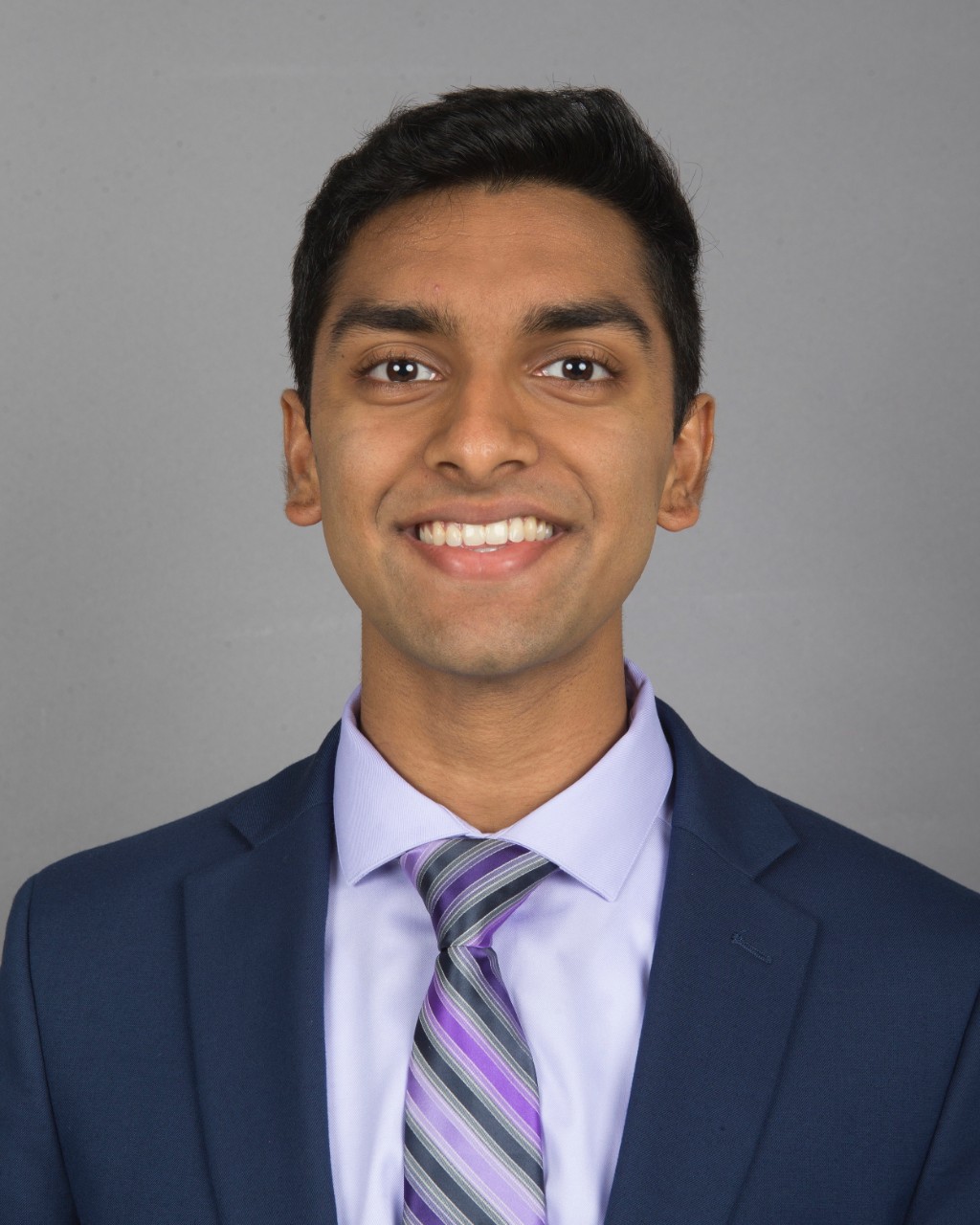
Rishi Mehta
“I was already gleaning patient information online from medical records to calculate pharmaceutical dosages,” says Mehta. “After the quarantine I now have the opportunity to attend weekly team lab meetings virtually hosted by our primary research investigator.”
In addition, he stays on pace by checking in on email and is currently working on a poster presentation for UC’s Undergraduate Scholarly Showcase typically held in-person in mid-April. “It's transitioning to a virtual showcase now to give students an opportunity to publish online during the quarantine,” says Mehta.
As freshmen, both Thomas and Mehta entered UC’s campus with Cincinnatus Presidential Scholarships for national merit, covering their tuition and much of their room and board.
And as Goldwater Scholars — a national program providing scholarships to college sophomores and juniors who intend to pursue research careers in the natural sciences, mathematics and engineering — they represent strong examples of the academic excellence reflected in the university’s Next Lives Here strategic direction.
Earning while learning
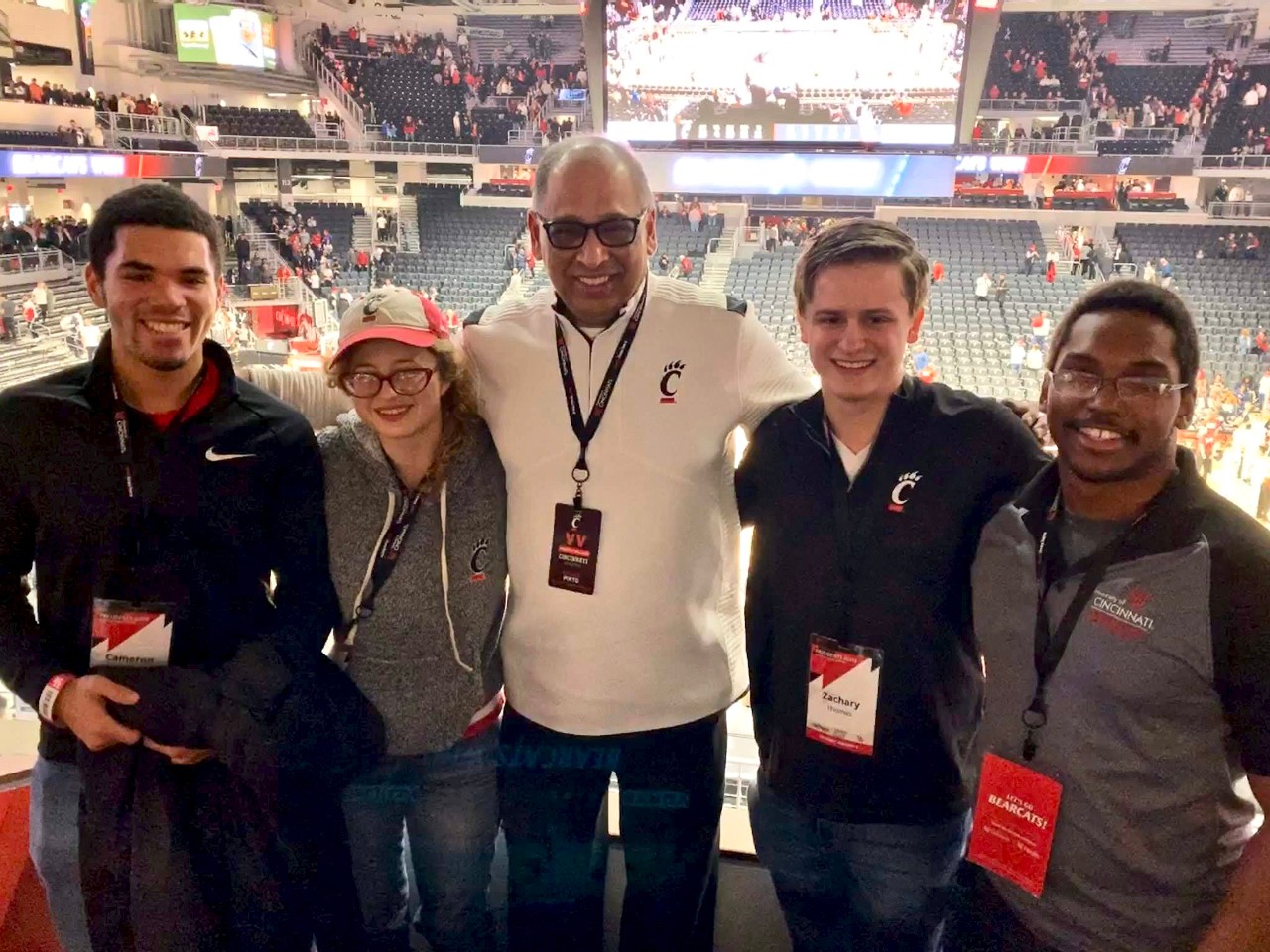
Thomas (second from right) and other student scholars were invited By UC's President Neville Pinto to attend a Bearcat basketball game as his guests in 2019.
Receiving a Cincinnatus Scholarship right out of high school was a plus for selecting UC but wasn’t the only reason Thomas became a Bearcat.
“The Cincinnatus Scholarship was a strong factor in choosing UC but the most important thing to seal my decision was UC’s cooperative work program,” he says. “As an engineering student I earn as I learn by alternating semesters of full-time classes then full-time work as a co-op.
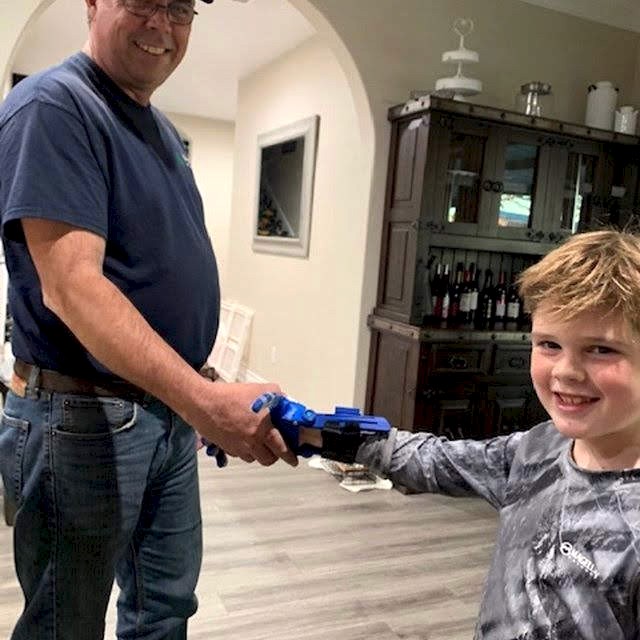
As a member of Enable UC Thomas helps design new prosthetics on 3D printers for young patients with missing hands or limbs.
“So far, I’ve completed three of my co-ops in biomedical laboratories at Cincinnati Children’s Hospital, which has boosted my undergraduate research experience significantly.”
Early in his co-op experience, Thomas worked on kidney research at Children’s looking at how to break up the scarring effects from kidney problems.
“In response to renal [or kidney] injury certain cells called fibroblasts deposit proteins to form a fibrotic scar to protect the tissue, somewhat like a scab,” says Thomas. “Unfortunately, somewhere along the evolutionary tree mammals lost the ability to heal that scar.
“So while looking at ways to understand that scar and coerce the tissue into healing itself like some animals are able to, we looked at ways to inhibit those early proteins that form the scar,” he adds. “It’s all very exciting work and can be applied to other organs, such as the heart that also undergoes fibrosis after a heart attack.”
Before long, Thomas used similar techniques to conduct another co-op in the lab of Katherine Yutzey at Children’s, focusing more on why mammals don’t regenerate healthy tissue after a scar from a developmental standpoint.

Thomas enjoyed speaking to the American Heart Association about his co-op research on regenerating damaged heart tissue.
Throughout his research co-ops, Thomas developed a strong curiosity for delving into scientific communication as an art form.
“While giving a tour in the Cincinnati Children’s Research Division to several members of the American Heart Association, I saw the value of translating complex terms to make science accessible to the general population,” Thomas says. “Even researchers in one field can have trouble understanding scientific terms in another. I hope to eventually hone the skills to explain scientific complexity in a way that makes sense to people outside the field without diluting the science with pseudoscience.”
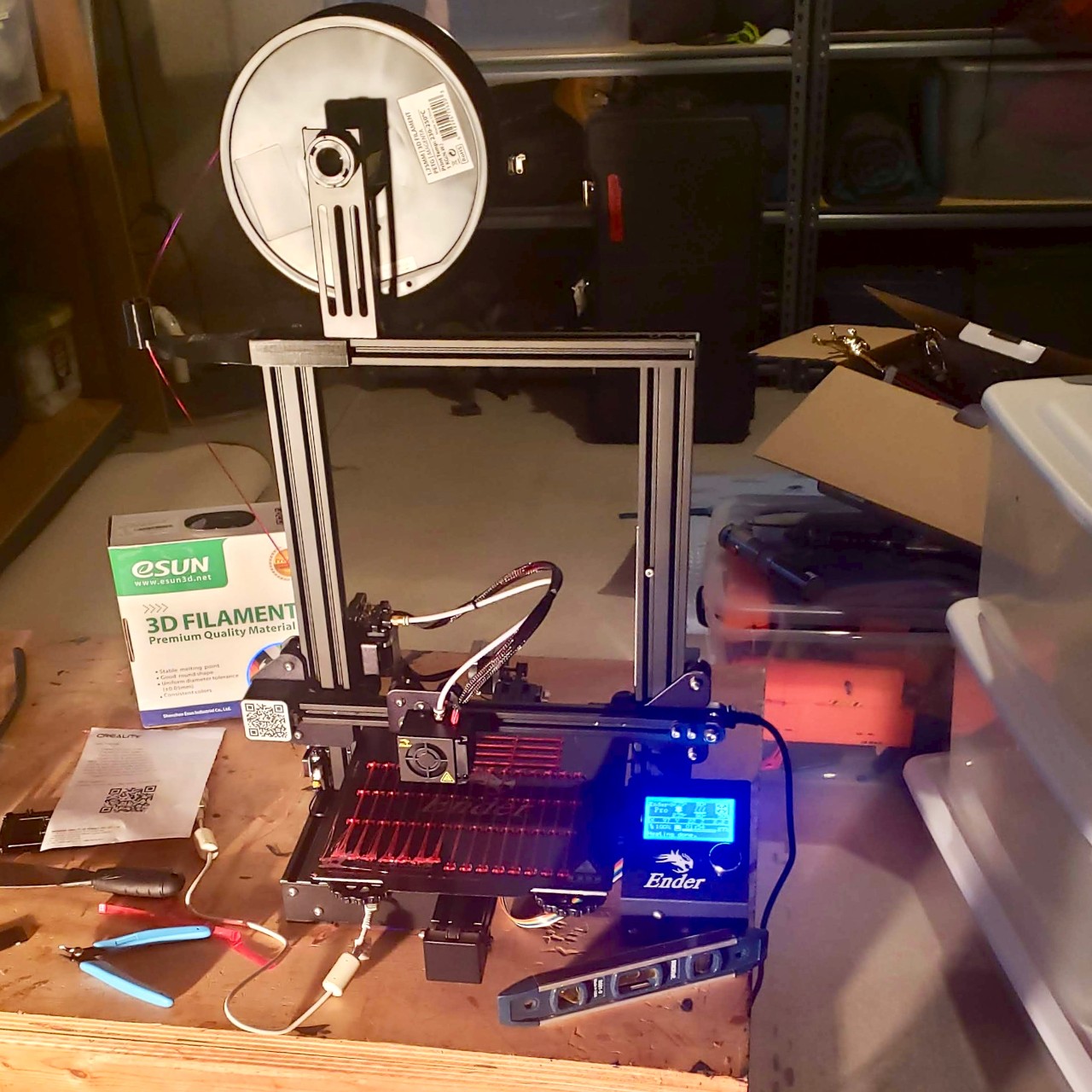
While in quarantine, Thomas stays active with Enable UC by creating ear relief straps for PPE masks for local healthcare workers. The 3D printer works by heating filament (usually a plastic) and forcing it through a 0.4 mm diameter nozzle to lay it down layer-by-layer on the print bed.
After completing his work for Enable UC and virtual summer coursework, Thomas looks forward to the possibility of actually traveling for his fall co-op position, possibly to the NASA Ames Research Center in California.
“At NASA I would work in astrobiology, perhaps developing computer simulations for how we might detect life or how life would develop under certain conditions out in space,” he says.
With his Goldwater scholarship Thomas plans to work toward graduate school where he hopes to equip himself with the skills and knowledge to research artificial tissues as a means to enhance the lives of patients.
"After earning a doctoral degree in biomedical engineering I will look at either academia or government research," says Thomas. “I haven’t had any experience in government research yet but I’m quite intrigued with it and it's something I want to explore."
Personal ties
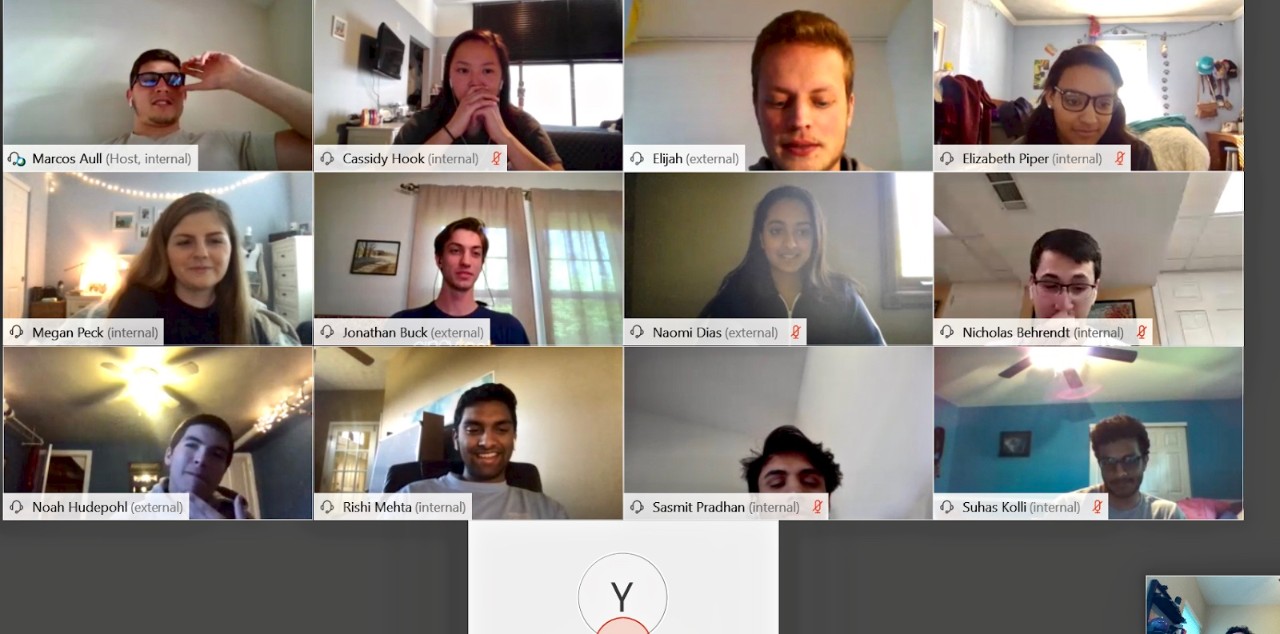
As co-founder and vice president of the Management for Queen City Consulting student organization, Mehta and 12 other members hold virtual town hall meetings to continue offering students insight, programming and consulting opportunities with local for-profit companies.
As an undergraduate in UC’s unique medical sciences program in the College of Medicine and former pediatric patient with inflammatory bowel disease (IBD) — a series of disorders that involve inflammation of the digestive tract — Mehta has a personal stake in the research he’s been working to advance.
“My condition is very diet and stress dependent,” says Mehta. “So I wanted to seamlessly transition from being a patient at Children’s to becoming a student at UC.”
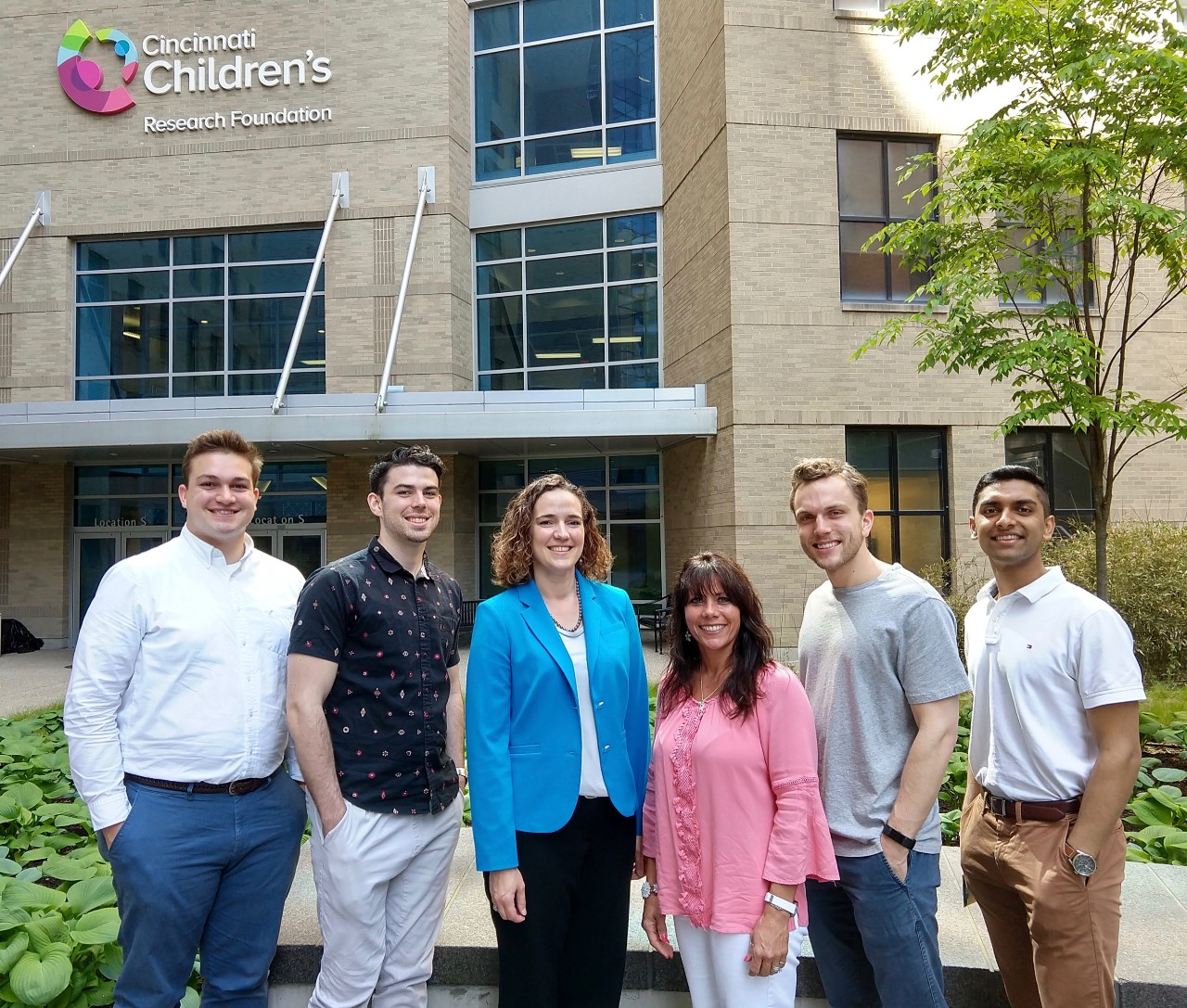
Mehta (far right) significantly increased his research techniques while working in the CCHMC Ramsey Lab.
As part of the medical sciences program curriculum to work in a medical laboratory setting, Mehta hit the ground running as a freshman in the lab of Laura Ramsey, UC assistant professor of pediatrics and research at CCHMC. There he analyzed genetic predictors of intolerance to the drug methotrexate in children with IBD, the same medication he took as an IBD patient.
His personal experience offered a unique insight as he reviewed patient experiences, explained Ramsey.
“Before Rishi joined the lab, I had the desire to perform this work but didn’t have the time to do it myself or have any students who could work on it,” said Ramsey. “Rishi has brought an incredible passion and insightfulness to this project that would not have been possible with another student. He has turned his diagnosis of ulcerative colitis into a mission to improve the lives of patients like him that struggle with treatment of this disease.”

As a member of CCHMC's Ramsey Lab, mehta learned how to apply laboratory research techniques to several medical projects.
Taking his personal passion even further, Mehta volunteered in the Schubert-Martin IBD Center at CCHMC, helping to create a curriculum about transitioning care, body image and medical literacy to present to teenagers across the country.
And he continues to plan events for local organizations such as the Crohn’s and Colitis Foundation, Spin4 Crohn’s, Colitis Cures and Kick for Crohn’s and Colitis Cincinnati.
“The experience in Dr. Ramsey’s lab taught me a lot of important tenets of scientific research, and I was able to take what I learned and step back and apply it to another field of study the following summer,” says Mehta.
Continuing his Cincinnati Children’s Summer Undergraduate Research Fellowship in the summer of 2019, Mehta worked in the laboratory of Marc Rothenberg, UC professor of pediatrics and director of the Cincinnati Center for Eosinophilic Disorders at CCHMC.
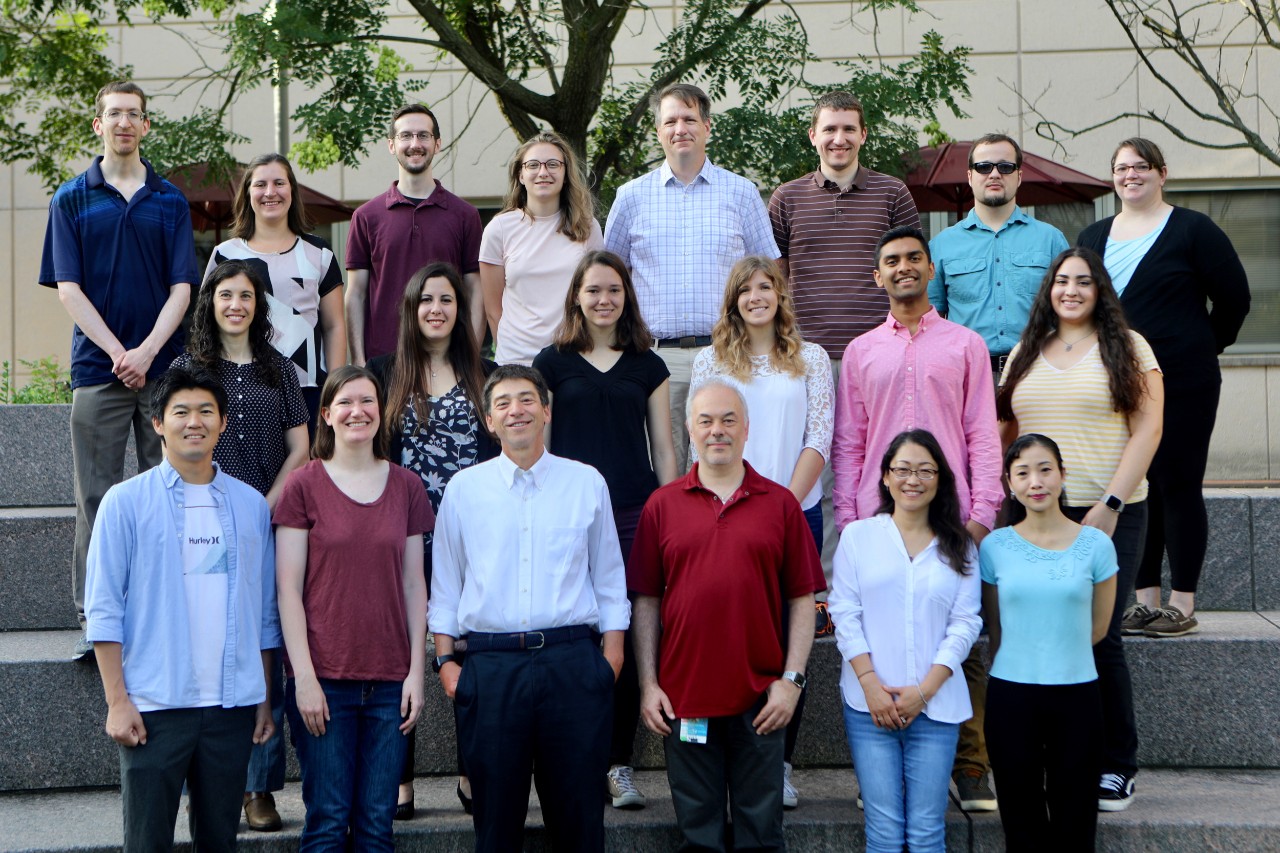
Mehta (second from right, middle row) enjoyed his time in CCHMC's Rothenberg Lab looking at an allergic inflammatory disease of the esophagus.
As a smooth transition away from focusing solely on studying methotrexate, Mehta took advantage of his time in Rothenberg’s lab to look closer at an allergic inflammatory disease of the esophagus that occurs when a type of white blood cell known as the eosinophil accumulates in the esophagus.
Among Mehta’s many achievements, he is also a UC Darwin T. Turner Scholar, maintains a perfect 4.0 GPA and serves on a national patient advisory council for a pediatric inflammatory bowel disease organization.
While delighted that the Barry Goldwater Scholarship and Excellence in Education Foundation recognized his work, “I was also very surprised because Goldwater looks at basic science and engineering and a large portion of my work is more clinically focused,” says Mehta. “I feel incredibly honored to be recognized and thankful to my mentors at UC and Cincinnati Children’s.”
Mehta eventually hopes to complete a medical scientist training program to obtain a medical and doctoral degree, studying gastrointestinal immunology. “My dream is to someday run a translational lab charged with finding a cure for inflammatory bowel disease,” he says.
For more information about:
Story by Melanie Schefft and Cedric Ricks. Featured image at top: Barry Goldwater official portrait representing the Barry Goldwater Scholarship and Excellence Foundation. Photo/goldwater.scholarsapply.org
Learn to lead and succeed
Want to build new innovative leadership skills for your future? Apply to UC as an undergrad or graduate Bearcat. Seeking academic exceellence is part of UC's Next Lives Here strategic direction.
Related Stories
UC celebrates record spring class of 2025
May 1, 2025
UC recognized a record spring class of 2025 at commencement at Fifth Third Arena.
‘Doing Good Together’ course gains recognition
May 1, 2025
New honors course, titled “Doing Good Together,” teaches students about philanthropy with a class project that distributes real funds to UC-affiliated nonprofits. Course sparked UC’s membership in national consortium, Philanthropy Lab.
DAAPworks reveals 2025 Innovation Awards – discover the winning...
May 1, 2025
Visionary projects stole the show during DAAPworks 2025, from wayfinding technology for backcountry skiers to easy-to-use CPR training kits for children.
